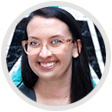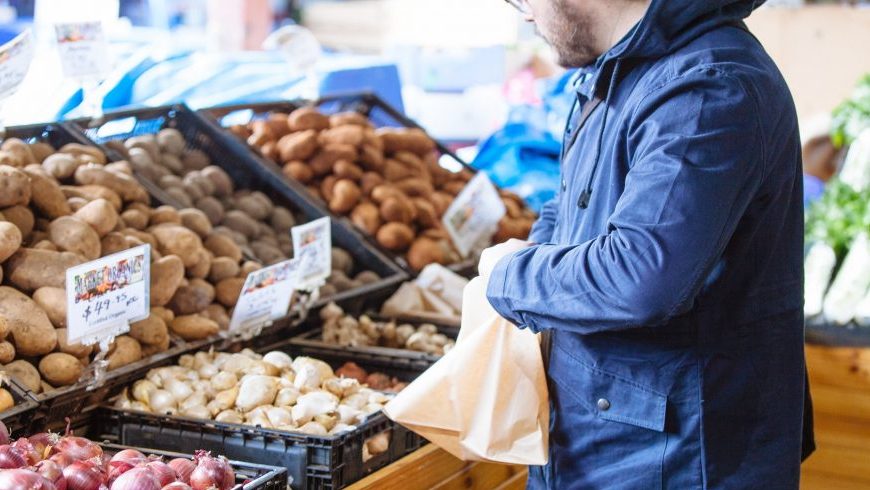COMMUNITY KITCHEN GIVES RESIDENTS ACCESS TO NUTRITIOUS FOOD
Nearly 30% of the 50,000 people residing in Niagara Falls, NY, live below the national poverty line. Almost 70% of that number are eligible for food stamps. Over 60% of Niagara Falls residents are considered overweight or obese, and over 10% struggle with diabetes. Health conditions continue to decline, and yet residents have minimal access to healthy, affordable food options. The Niagara Falls area is a community in crisis.
In response to these alarming statistics and in an effort to address their community’s needs, Niagara University has created “Community Kitchen,” a program designed to give Niagara Falls residents access to delicious, nutritious food. This program aims to feed the community with healthy, affordable food, as well as educate individuals on how to make better food choices at home. It is a product of Niagara University’s EntrepreNU, a poverty-focused social entrepreneurship competition, which, in March of 2015, awarded three NU junior students $10,000 in start up funds to implement a plan to provide food access and education to low-income residents in Niagara Falls.
In addition, Niagara University was awarded a $50,000 NobleCause grant in 2016 in recognition of their efforts to address their community’s challenges and their desire to bring lasting change with the Community Kitchen program. The funds are being used to recruit more residents into the program, pay for classes and educators, as well as purchase ingredients that residents can take home to try healthier new recipes. Program coordinators are also using the grant money to recruit more volunteers ensuring a greater reach in the area. The Community Kitchen volunteers will share and distribute information throughout the community, expanding the education provided to a larger number of Niagara Falls residents.
THE COMMUNITY KITCHEN MODEL
The Community Kitchen is currently a pop-up cooking demonstration and educational class residents can attend in one of five housing developments in Niagara Falls. Brooke Nigro, project coordinator of Community Kitchen, works with local celebrity Chef Bobby Anderson to organize meal plans for the Community Kitchen events, which alternate between locations. Anderson tells her what he’d like to cook for the group, and Nigro and her team of volunteers get to work figuring out how to get the ingredients and food to a large group of residents.
The main lessons Nigro wants the residents to take away are: “[how] to make healthy foods that don’t cost a fortune, [how] to shop on the outside areas of the store, and [how to] utilize the produce markets.” Chef Anderson takes the value of these skills very seriously, as well. He wants residents to be able to cook simple foods with ingredients they can easily access.
Dr. David Taylor, associate professor of Criminology and director of the The Rev. Joseph L. Levesque, C.M. Institute for Civic Engagement at Niagara University, is one of the many people involved in the Community Kitchen’s program. He is devoted to sharing the benefits of improved nutrition with the community, while also having fun cooking new dishes and trying new foods. Volunteers are recruited to help serve residents and to prepare “take home” bags with food and ingredients so residents are able to try the new recipes at home with high-quality ingredients. He emphasizes that this whole initiative is built around volunteerism. “We have some great volunteers.”
Our hope is that [the residents] get excited about good, wholesome food, and that they get excited about nutrition and healthy eating.
– Dr. David Taylor, Associate Professor of Criminology and Director of The Rev. Joseph L. Levesque, C.M. Institute for Civic Engagement, Niagara University
Taylor also explains that the volunteers and coordinators really want to highlight the Community aspect of Community Kitchen. Residents are encouraged to make friends, find “recipe buddies,” and have fun as a group while they learn more about healthy eating options. “Our hope is that [the residents] get excited about … good, wholesome food, and that they get excited about nutrition and healthy eating,” he adds.
MORE THAN JUST A PLACE TO EAT
The Community Kitchen has become more than just a place for residents to get a nice, hot meal. Students like Annie Eckhardt are incorporating other Niagara University programs into the Kitchen. Eckhardt, a junior nursing student, offers free health screenings during Community Kitchen hours, answers questions, and holds a general health education “forum” of sorts. She believes talking about preventative medicine and how diet and exercise can improve overall health will positively impact the community’s well being.
In addition, a dietician talks to the group about their nutrition, and the group learns how to cater recipes to their individual needs. These resources give families and individuals in the area the skills they need to pick healthy ingredients at their local store, as well as help them purchase nutritious, easy-to-make meals on a tight budget.
Students from all over the university volunteer their time to the Community Kitchen, and they get to implement their knowledge and training in ways that truly impact the community. Students interested in social work volunteer their time to better understand the residents and the issues that affect them. Kevin Blair, professor of social work, explains that this specific community engagement teaches his students about the dynamics of poverty and how it can affect all aspects of a person’s life.
WHAT’S NEXT
The future of Community Kitchen is in the hands of Niagara University students, as well as the community at large. People who volunteer for and attend these events help create more awareness, which, of course, helps in fundraising and donations. The coordinators and volunteers aim to, eventually, build a “brick and mortar” Community Kitchen, staffed with a chef, volunteers, and coordinators who serve the community in a single location. For now, though, they’re happy to have “pop up” events in housing communities all around Niagara Falls.
The students who created the idea for Community Kitchen, as well as the highly involved volunteers and coordinators, also hope to promote the program as a business model in the near future. Professor Blair explains that this type of program could be helpful in places just like Niagara Falls. “For the number of impoverished neighborhoods throughout the United States, where access to food is a problem; transportation to good quality food is also an issue. If you can figure out how to do this and generate revenue… you can affect the lives of millions of people,” he explains.
To achieve national impact, universities and communities have to get involved and create innovative solutions for deep-rooted problems. Professor Blair and the other volunteers are thankful for the donations that have made it possible to spotlight the potential of Community Kitchen. And, as Associate Professor Taylor says, “None of this would be possible without our donors.”
The Community Kitchen model highlights the intersection between business, health care, and social work; something many people see as separate. Niagara University is allowing students from a variety of different sectors to work together to solve problems that affect their community in truly unique ways. But it’s not just the residents that benefit from this; the students are also learning, making connections, and creating socially-based businesses that can create change on a larger scale. The future of these Niagara University students is very bright, and so is the future of Community Kitchen.
Do you want to be part of a meaningful project like Community Kitchen? Find volunteer opportunities near you with NobleHour.
The NobleCause grants, organized by NobleHour.com, were made possible by an anonymous donor within the GiveWell Community Foundation, which serves Polk County, Florida. The NobleCause grant competition, launched in 2015, invited high schools, school districts, colleges and universities, and nonprofits to identify and address a local challenge and to recruit and enrich the social responsibility of volunteers. 100 organizations were awarded $6,500 grants, while seven exemplary organizations were recognized at the $50,000 level. NobleHour.com is dedicated to using NobleCause to increase volunteerism that raises awareness at the local level and develops community members who can take action.
Since 2007, NobleHour has proven to be the volunteer management solution for organizations across the nation. With its robust online platform, NobleHour enhances community engagement with a variety of innovative and transformative tools for finding, tracking, and measuring volunteer, service‐learning, and community service initiatives. With offices in Lakeland, FL, and Portland, OR, the NobleHour team is dedicated to empowering good in communities across the country.
By NobleHour Special Contributor:

Latasha Doyle
Consultant, NobleHour
Contributing Writer
Denver, Colorado
Latasha Doyle is a writer and long term care volunteer living outside of Denver, Colorado. When she’s not writing or volunteering, she enjoys crocheting, Netflix marathons, and planning her next trip.
